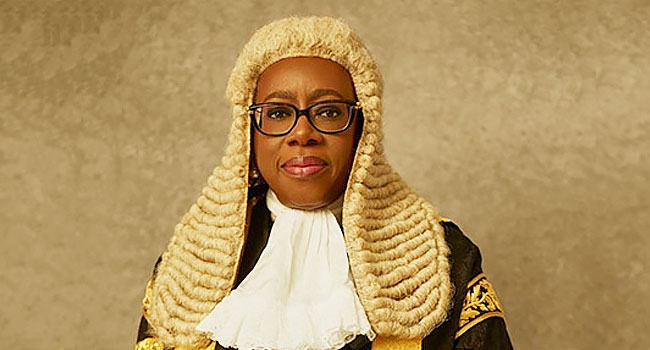Former governor of Kaduna State, Malam Nasir El-Rufai, has said all eyes are now on the Chief Justice of Nigeria (CJN) Kudirat Kekere-Ekun-led Supreme Court of Nigeria to decide on the Rivers State emergency rule and the suspension of Governor Sim Fubara by President Bola Ahmed Tinubu.
Delivering his speech at the law week of Nigerian Bar Association, Bwari branch, in Abuja, El-Rufai recalled that the former Chief Judge of Nigeria Mohammed Lawal Uwais-led Supreme Court between 2006 and 2007 discharged this responsibility by reversing the impeachment of Governors Joshua Dariye and Peter Obi and severely restricting the powers of the President when a ‘state of emergency’ is lawfully declared in any state of the Federation.
The former governor who spoke on the theme “Lawyers as Agents of Change: Navigating Economic Reforms, Judicial Policy and Contemporary Issues” stated that, “All eyes are now on the Kekere-Ekun court on the action of the current president to remove elected executives and legislators due to the declaration of a state of emergency. Many informed Nigerians are also curious to know whether two-thirds of all the members of the National Assembly can be decided without a division and physical count – but through voice votes as the Akpabio and Abbas-led chambers did with such arrogant disregard for common sense.”
El-Rufai, who recently resigned from the ruling All Progressives Congress (APC) and joined the Social Democratic Party (PDP), said Nigeria is at another critical inflexion point in its history.
“As we struggle, beset by economic turbulence, social upheaval, and institutionalised distrust, particularly between the government and the governed, the challenge before us is to consider the enduring role of the legal profession in building a society governed by law, reason, and reform-minded leadership. Amidst economic recalibration on a path marked by subsidy removals, exchange rate unification, and fiscal adjustments, Nigerians are being asked to endure hardship in the promise of long-term gain. But as any seasoned reformer knows, the impetus for economic reform and transformation is rooted in politics; and, as we all know, politics without trust, is mere chicanery.
Therefore, for reform to succeed, there must be trust between the reformer and the people,” he said.
El-Rufai added, “Clearly, the time has come for lawyers to stop being mere litigators of symptoms and to become architects of institutional health.
“The legal profession has a duty to promote the values of the Constitution and ensure access to justice for all.”
The former governor also commented on consumer protection, “The latter area, consumer protection, is especially one in which young, public-spirited lawyers can work actively. Consumer protection is neither in the Exclusive nor the Concurrent Legislative Lists. Elementary constitutional law tells us that for this reason it is on the notional Residual Legislative List and therefore a matter exclusively for the State Houses of Assembly to legislate upon. Even though there is established by the Federal Government a Federal Competition and Consumer Protection Commission, even if we argue that the National Assembly did have the constitutional power to confer consumer protection duties on the Commission, it is, of course, physically impossible for a body sitting in Abuja, with a few zonal offices, to successfully undertake the consumer protection and education functions that our citizenry desperately need to shield them from the effects of poor customer service and the countless fake and substandard goods that litter our land. In other words, the true test of our commitment to the cause of Justice lies not merely in the prestige that the profession of law bestows on us. Rather, it is in the proximity we maintain to justice at the margins,” he said.











